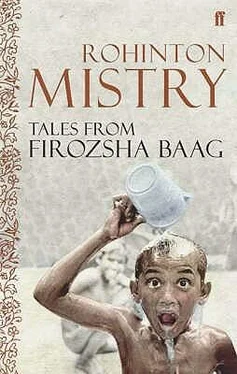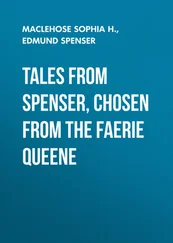Rohinton Mistry - Tales From Firozsha Baag
Здесь есть возможность читать онлайн «Rohinton Mistry - Tales From Firozsha Baag» весь текст электронной книги совершенно бесплатно (целиком полную версию без сокращений). В некоторых случаях можно слушать аудио, скачать через торрент в формате fb2 и присутствует краткое содержание. Год выпуска: 2006, Издательство: Faber & Faber, Жанр: Современная проза, на английском языке. Описание произведения, (предисловие) а так же отзывы посетителей доступны на портале библиотеки ЛибКат.
- Название:Tales From Firozsha Baag
- Автор:
- Издательство:Faber & Faber
- Жанр:
- Год:2006
- ISBN:нет данных
- Рейтинг книги:3 / 5. Голосов: 1
-
Избранное:Добавить в избранное
- Отзывы:
-
Ваша оценка:
- 60
- 1
- 2
- 3
- 4
- 5
Tales From Firozsha Baag: краткое содержание, описание и аннотация
Предлагаем к чтению аннотацию, описание, краткое содержание или предисловие (зависит от того, что написал сам автор книги «Tales From Firozsha Baag»). Если вы не нашли необходимую информацию о книге — напишите в комментариях, мы постараемся отыскать её.
Tales From Firozsha Baag — читать онлайн бесплатно полную книгу (весь текст) целиком
Ниже представлен текст книги, разбитый по страницам. Система сохранения места последней прочитанной страницы, позволяет с удобством читать онлайн бесплатно книгу «Tales From Firozsha Baag», без необходимости каждый раз заново искать на чём Вы остановились. Поставьте закладку, и сможете в любой момент перейти на страницу, на которой закончили чтение.
Интервал:
Закладка:
The hastily marshalled column entered the veranda with Najamai at its head, and stopped at the paying guests’ door. The screaming had emptied Kashmira of all words. She pointed within, propping herself up against the doorjamb.
Inside, Khorshedbai was leaning over the locked parrot cage. She seemed to have noticed no part of the commotion. The neighbours looked with curiosity that turned to horror as soon as their eyes adjusted to Khorshedbai’s dim room. There was a lull in the noise and confusion, a stunned silence for moments, during which the bangles on Khorshedbai’s wrists could be heard tinkling.
Ardesar sat on a chair with his face hidden in his hands. He was shaking visibly. The baby, liberated from the swaddling clothes, was inside the cage. Intermittent whistling came from Khorshedbai, mixed with soft kissing sounds or a series of rapid little clicks with tongue against palate. From her fingers she teasingly dangled two green peppers, long and thin, over the baby’s face.
Squatter
Whenever Nariman Hansotia returned in the evening from the Cawasji Framji Memorial Library in a good mood the signs were plainly evident.
First, he parked his 1932 Mercedes-Benz (he called it the apple of his eye) outside A Block, directly in front of his ground-floor veranda window, and beeped the horn three long times. It annoyed Rustomji who also had a ground-floor flat in A Block. Ever since he had defied Nariman in the matter of painting the exterior of the building, Rustomji was convinced that nothing the old coot did was untainted by the thought of vengeance and harassment, his retirement pastime.
But the beeping was merely Nariman’s signal to let Hirabai inside know that though he was back he would not step indoors for a while. Then he raised the hood, whistling “Rose Marie,” and leaned his tall frame over the engine. He checked the oil, wiped here and there with a rag, tightened the radiator cap, and lowered the hood. Finally, he polished the Mercedes star and let the whistling modulate into the march from The Bridge On The River Kwai . The boys playing in the compound knew that Nariman was ready now to tell a story. They started to gather round.
“Sahibji , Nariman Uncle,” someone said tentatively and Nariman nodded, careful not to lose his whistle, his bulbous nose flaring slightly. The pursed lips had temporarily raised and reshaped his Clark Gable moustache. More boys walked up. One called out, “How about a story, Nariman Uncle?” at which point Nariman’s eyes began to twinkle, and he imparted increased energy to the polishing. The cry was taken up by others, “Yes, yes, Nariman Uncle, a story!” He swung into a final verse of the march. Then the lips relinquished the whistle, the Clark Gable moustache descended. The rag was put away, and he began.
“You boys know the great cricketers: Contractor, Polly Umrigar, and recently, the young chap, Farokh Engineer. Cricket aficionados , that’s what you all are.” Nariman liked to use new words, especially big ones, in the stories he told, believing it was his duty to expose young minds to as shimmering and varied a vocabulary as possible; if they could not spend their days at the Cawasji Framji Memorial Library then he, at least, could carry bits of the library out to them.
The boys nodded; the names of the cricketers were familiar.
“But does anyone know about Savukshaw, the greatest of them all?” They shook their heads in unison.
“This, then, is the story about Savukshaw, how he saved the Indian team from a humiliating defeat when they were touring in England.” Nariman sat on the steps of A Block. The few diehards who had continued with their games could not resist any longer when they saw the gathering circle, and ran up to listen. They asked their neighbours in whispers what the story was about, and were told: Savukshaw the greatest cricketer. The whispering died down and Nariman began.
“The Indian team was to play the indomitable MCC as part of its tour of England. Contractor was our captain. Now the MCC being the strongest team they had to face, Contractor was almost certain of defeat. To add to Contractor’s troubles, one of his star batsmen, Nadkarni, had caught influenza early in the tour, and would definitely not be well enough to play against the MCC. By the way, does anyone know what those letters stand for? You, Kersi, you wanted to be a cricketer once.”
Kersi shook his head. None of the boys knew, even though they had heard the MCC mentioned in radio commentaries, because the full name was hardly ever used.
Then Jehangir Bulsara spoke up, or Bulsara Bookworm, as the boys called him. The name given by Pesi paadmaroo had stuck even though it was now more than four years since Pesi had been sent away to boarding-school, and over two years since the death of Dr. Mody. Jehangir was still unliked by the boys in the Baag, though they had come to accept his aloofness and respect his knowledge and intellect. They were not surprised that he knew the answer to Nariman’s question: “Marylebone Cricket Club.”
“Absolutely correct,” said Nariman, and continued with the story. “The MCC won the toss and elected to bat. They scored four hundred and ninety-seven runs in the first inning before our spinners could get them out. Early in the second day’s play our team was dismissed for one hundred and nine runs, and the extra who had taken Nadkarni’s place was injured by a vicious bumper that opened a gash on his forehead.” Nariman indicated the spot and the length of the gash on his furrowed brow. “Contractor’s worst fears were coming true. The MCC waived their own second inning and gave the Indian team a follow-on, wanting to inflict an inning’s defeat. And this time he had to use the second extra. The second extra was a certain Savukshaw.”
The younger boys listened attentively; some of them, like the two sons of the chartered accountant in B Block, had only recently been deemed old enough by their parents to come out and play in the compound, and had not received any exposure to Nariman’s stories. But the others like Jehangir, Kersi, and Viraf were familiar with Nariman’s technique.
Once, Jehangir had overheard them discussing Nariman’s stories, and he could not help expressing his opinion: that unpredictability was the brush he used to paint his tales with, and ambiguity the palette he mixed his colours in. The others looked at him with admiration. Then Viraf asked what exactly he meant by that. Jehangir said that Nariman sometimes told a funny incident in a very serious way, or expressed a significant matter in a light and playful manner. And these were only two rough divisions, in between were lots of subtle gradations of tone and texture. Which, then, was the funny story and which the serious? Their opinions were divided, but ultimately, said Jehangir, it was up to the listener to decide.
“So,” continued Nariman, “Contractor first sent out his two regular openers, convinced that it was all hopeless. But after five wickets were lost for just another thirty-eight runs, out came Savukshaw the extra. Nothing mattered any more.”
The street lights outside the compound came on, illuminating the iron gate where the watchman stood. It was a load off the watchman’s mind when Nariman told a story. It meant an early end to the hectic vigil during which he had to ensure that none of the children ran out on the main road, or tried to jump over the wall. For although keeping out riff-raff was his duty, keeping in the boys was as important if he wanted to retain the job.
“The first ball Savukshaw faced was wide outside the off stump. He just lifted his bat and ignored it. But with what style! What panache! As if to say, come on, you blighters, play some polished cricket. The next ball was also wide, but not as much as the first. It missed the off stump narrowly. Again Savukshaw lifted his bat, boredom written all over him. Everyone was now watching closely. The bowler was annoyed by Savukshaw’s arrogance, and the third delivery was a vicious fast pitch, right down on the middle stump.
Читать дальшеИнтервал:
Закладка:
Похожие книги на «Tales From Firozsha Baag»
Представляем Вашему вниманию похожие книги на «Tales From Firozsha Baag» списком для выбора. Мы отобрали схожую по названию и смыслу литературу в надежде предоставить читателям больше вариантов отыскать новые, интересные, ещё непрочитанные произведения.
Обсуждение, отзывы о книге «Tales From Firozsha Baag» и просто собственные мнения читателей. Оставьте ваши комментарии, напишите, что Вы думаете о произведении, его смысле или главных героях. Укажите что конкретно понравилось, а что нет, и почему Вы так считаете.












